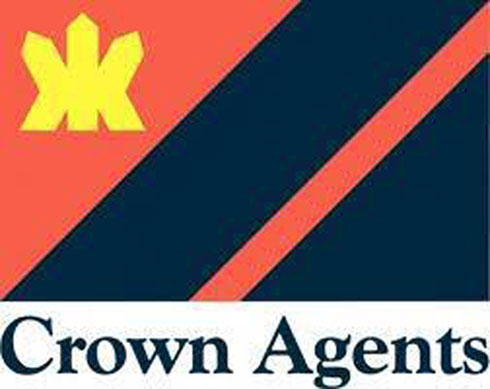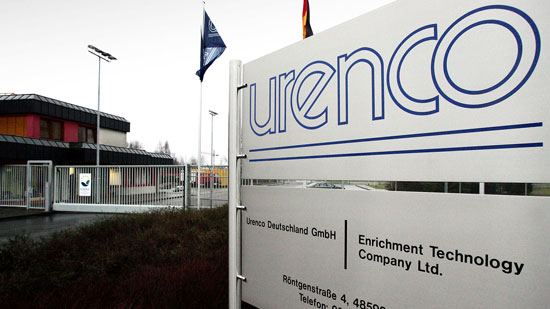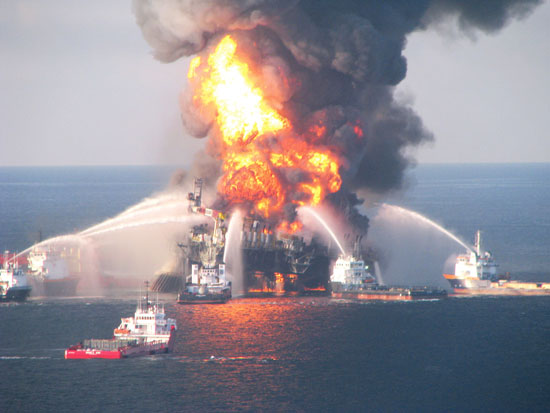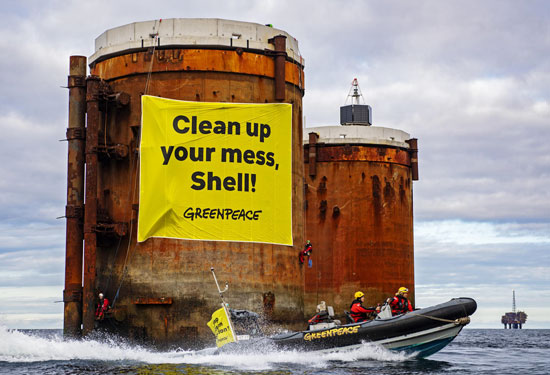Exposed: All the Queen’s Agents and Corporations that Control the World (3)
Taken from aim4truth.org
Read the second part of te article
Crown Agents International
Crown Agents International (CAI) is an international development company that works with governments, aid agencies, NGOs and companies in nearly 100 countries.

Through consultancy, supply chain management and financial services, they help countries grow their economies, strengthen their health systems and improve financial management.
CAI is headquartered in Sutton, Surrey but has an established network of international offices, project offices or representatives in 40 countries.
CAI is one of the world’s leading experts in public procurement and supply chain management and they provide financial services to facilitate development, focusing on international payments and cash management, trade finance and investment management for donors, NGOs and financial institutions.
Crown Agents USA Inc.
Our story begins in the 1700s, when colonial administrations employed agents to recruit people and procure and ship supplies to the colonies. Some agents had been authorized to manage British Treasury grants and they had become known (unofficially) as crown agents.
On April 1, 1833, the British government appointed the first Joint Agents General for Crown Colonies, George Baillie and Edward Barnard. Although appointed by the British Treasury‚ the Joint Agents General were accountable only to the governors of the 13 crown colonies that they served. They managed grants, raised capital, recruited personnel and shipped supplies for their clients.
Since our incorporation in the United States, we have provided technical assistance services and support to U.S. Government agencies, including the United States Agency for International Development (USAID), Millennium Challenge Corporation (MCC), Department of State (DOS), Department of Defense (DOD), and the United States Trade and Development Agency (USTDA).
We are an international development company that partners with governments, aid agencies, NGOs and companies in nearly 100 countries. We help countries grow their economies, strengthen their health systems and improve financial management. We have permanent offices in 22 countries and presence in another 18 through our project offices and representatives.
We are a limited company owned by a non-profit-making foundation. The Crown Agents Foundations our sole shareholder and oversees our ethos and activities. The Crown Agents Board is responsible for the company’s corporate governance. We were founded in 1833 and operated as a British statutory corporation for many years before being privatized in 1997.
British Control of American Uranium Enrichment
Another British corporation that has taken over the uranium enrichment market in America is the URENCO Group that has gone to great extremes to hide the fact that Britain, Holland and Germany own and run the largest uranium plant in America.
The URENCO Group is a nuclear fuel company operating several uranium enrichment plants in Germany, the Netherlands, United States, and United Kingdom.
It supplies nuclear power stations in about 15 countries, and has a 29% share of the global market for enrichment services in 2011. URENCO uses centrifuge enrichment technology in New Mexico subsidized by U.S. tax payers.
In July 2012, it was reported that a sale of the government interests of URENCO was being sought.
URENCO, headquartered in Stoke Poges in Buckinghamshire and registered in the UK, is one third owned by the UK government, one third by the Dutch government, the rest by two major German utilities, E.ON and RWE (one sixth each).
URENCO also owns a 50% interest in Enrichment Technology Company (ETC), a company jointly owned with Areva.
ETC provides enrichment-plant design services and gas-centrifuge technology for enrichment plants through its subsidiaries in the UK (Capenhurst), Germany (Gronau and Jülich), the Netherlands (Almelo), France (Tricastin) and the U.S. (Eunice, New Mexico).
URENCO USA

Somehow, the British owned URENCO company has the uranium market cornered in America. Located in southeastern New Mexico, the URENCO USA facility began operations on June 11, 2010. URENCO USA is the first enrichment facility to be built in the United States in 30 years and the first ever using centrifuge enrichment technology.
URENCO uses the U. S. National Enrichment Facility (NEF) as its plant for the enrichment of uranium in Eunice, New Mexico. The NEF is operated by Louisiana Energy Services (LES), which is in turn owned by the URENCO Group, just to make sure it looks like an American company.
Notice the elaborate ownership of this facility hides who actually owns and benefits from this facility. Foreign nations directly benefit through the profits after U.S. tax payers pay two/thirds of the cost of building it.
Since the Dedication Ceremony in October 2008, the company has grown to 236 employees with an annual payroll of USD $23 million. At full capacity, NEF can provide 50% of the current enriched uranium demand for civilian nuclear power plants in the U.S. The NEF began operations in June 2010.
The original proposed budget was USD $1.5 billion, but this increased to USD $3 billion for an enlarged facility capable of 5.9 million SWU at full capacity.
URENCO USA’s New Mexico Enrichment Facility
URENCO Corruption
In the 1970s, Dr. Abdul Qadeer Khan who worked for a subcontractor of URENCO in Almelo, brought stolen drawings of the centrifuges operated by URENCO to Pakistan.
In the early 1974, Dr. Khan joined the uranium enrichment program and, within a short span of time, established a highly advanced uranium enrichment facility near Islamabad.
In May 1985, the United Nations Council for Namibia decided to take legal action against URENCO for breaching UNCN Decree No. 1, which prohibited any exploitation of Namibia’s natural resources under apartheid South Africa, because URENCO had been importing uranium ore from the Rössing mine in Namibia.
According to Greenpeace, URENCO has a standing contract with Russia for the disposal of radioactive waste. In reality, these contracts do not relate to the disposal of waste, but to the sale of depleted uranium tails, which are re-enriched to natural uranium equivalent. As the enricher, Russia would be the owner of any radioactive waste that results from this process.
In March 2009, there were protests about the largest-ever load of depleted uranium hexafluoride being transported from Germany to the Siberian town Seversk.
British Petroleum’s U.S. Retail
BP might as well stand for “British Pirates” if you look at the record of a company that flourishes in America, the home of the largest oil companies in the world, and pollutes and destroys environment in a country they don’t live in. BP has a poor safety record and it looks like they just don’t care about America’s ecosystem.
These British Pirates, along with Shell, have fleeced America in every way concerning oil, from drilling to gas stations.
From New York to San Francisco, British Petroleum has a network of retail stations that provide Americans with fuels, lubricants and other products essential to modern transportation.
The company’s nationwide retail presence includes over 7,100 BP and ARCO branded gas stations, along with close to 1,000 convenience stores.
In 2016, BP delivered 7.3 billion gallons of BP-branded fuel to its U.S. customers. BP’s upstream operating segment includes production from Prudhoe Bay area in Alaska and four production platforms in deep-water Gulf of Mexico, where BP is the leading leaseholder.
In 2016, BP produced 676,000 barrels of oil per day, making the company one of America’s largest oil and natural gas producers.
How is it possible in America that U. S. governmental agencies allow the British invasion of our land, waters, and streets.
There is no reason that U.S. oil rights should go to a foreign country for their profit. American oil should be processed and sold by American companies not added to the portfolio of the Queen of England.
BP Crimes

BP PLC is the company responsible for the 2010 Deepwater Horizon oil spill. BP paid a record $20.8 billion to the US government to cover damages caused by the disaster.
It is considered the largest settlement with a single entity in American history. Apart from this settlement, BP has spent a reported $28 billion on cleanup and compensation for their criminal negligence.
The Deepwater Horizon disaster is considered by many to be the worst oil spill in US history.
The spill occurred when an offshore oil rig exploded in the Gulf of Mexico, dumping 4.9 million barrels of oil into the surrounding waters. The explosion killed 11 people and devastated marine wildlife in the area.
BP was found to be in gross negligence for not testing the only safety measure they had available for deep-water drilling accidents. BP continued to lie about their unpreparedness and criminal cover-up.
The massive oil slick still exists and has yet to be properly managed or cleaned up. America will never fully recover from this disaster. BP (British Pirates) carelessness for gross profits cost America more than money can recover.
Shell Oil Company
Shell Oil Company is the United States-based wholly owned subsidiary of Royal Dutch Shell, a multinational oil company of Anglo-Dutch origins, which is amongst the largest oil companies in the world. Shell Oil is wholly owned by British interests.
Approximately 22,000 Shell employees are based in the U.S. The U.S. headquarters are in Houston, Texas. Shell Oil Company, including its consolidated companies and its share in equity companies, is one of America’s largest oil and natural gas producers, natural gas marketers, gasoline marketers and petrochemical manufacturers.
Shell is the market leader through approximately 25,000 Shell-branded gas stations in the U.S. which also serve as Shell’s most visible public presence. At its gas stations Shell provides diesel fuel, gasoline and LPG.
Shell Oil Company was a 50/50 partner with the Saudi Arabian government- owned oil company Saudi Aramco in Motiva Enterprises, a refining and marketing joint venture which owns and operates three oil refineries on the Gulf Coast of the United States.
Shell products include oils, fuels, and car services as well as exploration, production, and refining of petroleum products. The Shell Oil Refinery in Martinez, California, the first Shell refinery in the United States, supplies Shell and Texaco stations in the West and Midwest.
After Texaco merged with Chevron in 2001, Shell purchased Texaco’s shares in the joint ventures. In 2002, Shell began converting these Texaco stations to the Shell brand, a process that was to be completed by June 2004 and was called “the largest retail re-branding initiative in American business history.”
Shell’s Crimes

Shell Puget Sound Refinery, Anacortes, Washington, was fined $291,000 from 2006 to 2010 for violations of the Clean Air Act making it the second most-fined violator in the Pacific Northwest. As of 2011, it was listed as “high priority violator” since 2008.
In 2008, a lawsuit was filed against Shell Oil Company for Clean Air Act violation. Shell Deer Park facility, 20 miles east of Houston, was the nation’s eighth-largest oil refinery and one of the world’s largest petrochemical producers.
The facility was also the second largest source of air pollution in Harris County, which ranked among the lowest in the nation in several measures of air quality.
Between 1978 and 1995, Shell Oil produced polybutylene pipes, which corrode when exposed to chlorine. A class action lawsuit was filed in 1995 against Shell Oil when the polybutylene pipes caused flooding in many households in the U.S. and Canada.
The settlement required Shell Oil to pay for the re-installation of piping for millions of houses for claims filed through May 2009.
Read the fourth part of te article
yogaesoteric
January 10, 2019
Also available in:
 Français
Français
